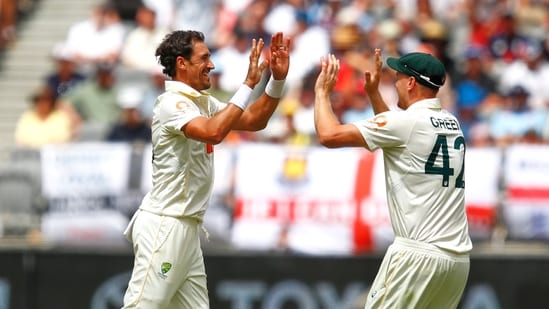Ashes 2nd Test Day 1 LIVE Score, Australia vs England: Starc celebrates a wicket.
Ashes 2nd Test Day 1 LIVE Score, Australia vs England: Dream start for Australia once again after England opt to bat first at the Gabba! This time it isn’t Crawley,…

Ashes 2nd Test Day 1 LIVE Score, Australia vs England: Starc celebrates a wicket.
Ashes 2nd Test Day 1 LIVE Score, Australia vs England: Dream start for Australia once again after England opt to bat first at the Gabba! This time it isn’t Crawley,…